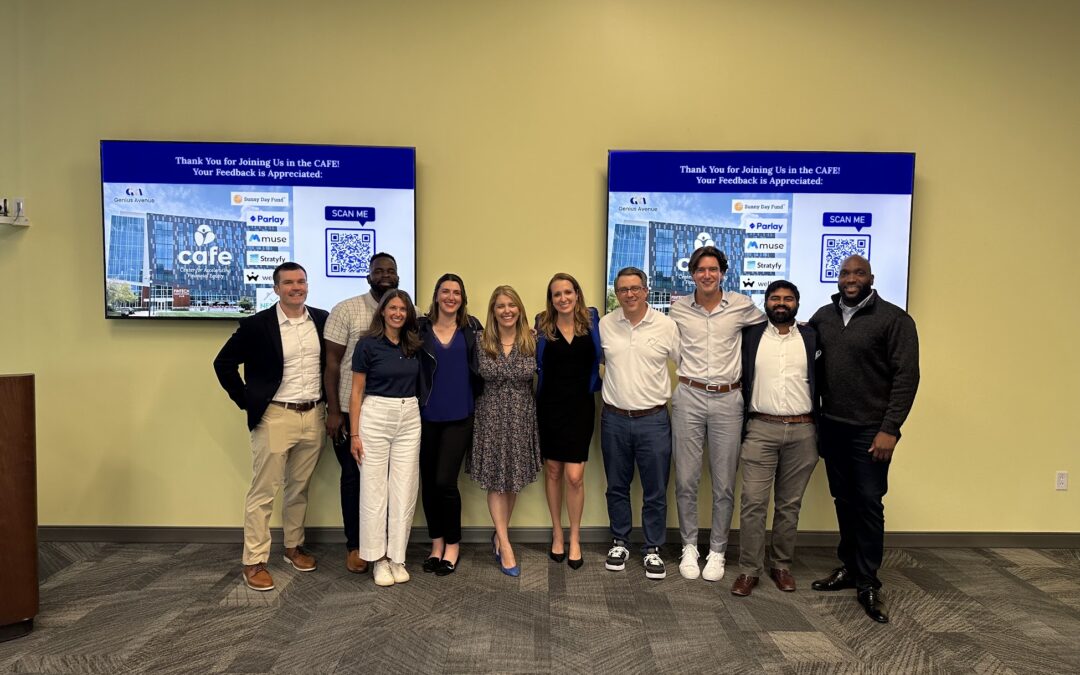Founder Feature: Laura Kornhauser from Stratyfy shares her journey to creating an impact-driven fintech
Creating an equitable financial ecosystem requires grappling with the realities of the financial system and its existing biases. These biases exist beyond individuals and can find their way into financial institutions’ algorithms. Factors used in lending decisions like credit scores are reflective of systemic inequalities and past discrimination. “A study on Bankrate from the Federal Reserve Board shows that Black, Hispanic and Native American borrowers generally have lower credit scores today, even when researchers control for other factors like education and income.” This negatively impacts underserved communities’ ability to access credit and loans.
Stratyfy aims to combat biases in the financial ecosystem and combines traditional lending decision-making with cutting-edge machine learning technology to help financial institutions make more equitable lending and fraud prevention decisions.
Stratyfy is part of the Center for Accelerating Financial Equity’s (CAFE) flagship Fintech Accelerator program cohort. CAFE is committed to working with innovative fintechs who are building technology to advance financial wellness for low-to-moderate income (LMI) populations.
We are featuring founders of our participating companies and highlighting their company and its journey with CAFE’s program. This week, we are featuring Laura Kornhauser, Co-Founder of Stratyfy. Laura was also recently named a “Most Influential Woman in Fintech 2024” by American Banker. Here’s a snippet from our chat with her.
Tell us a little bit about yourself and your background.
“Before starting Stratyfy 7 years ago, I worked at JPMorgan Chase in lending and risk roles. One of the challenges we faced in my time there was when we were launching a suite of products, an algorithmic trading strategies platform, which came under the scope of new regulation at the time. We could not get the technology to comply with that regulation, despite it being JPMorgan Chase’s product. That challenge opened my eyes to the intersection of finance, technology, and regulatory spaces.
I come from a family of entrepreneurs. My parents started a company when I was born and built it into a multi-national company over the course of 30 years. I always had the entrepreneurial bug in me and after that challenge, I thought it was time for me to take the plunge. I resigned from JPMorgan and went back to business school in my mid-30s. In business school, I was lucky enough to meet my co-founder Dmitry through common friends. We started Stratyfy together in 2017.”
Tell us a little bit about Stratyfy and how you started it. Was there a specific experience or moment that sparked the idea for your company?
A huge number of stars aligned for Stratyfy to be possible. Everyone in business school knew my experience in finance because of which I was connected with my co-founder Dmitry. At the time, he had spent days and nights building the core technology that we sell today. The technology brings together traditional decision making from financial institutions and cutting-edge machine learning. It helps financial institutions make decisions more accurate, more efficient, and fairer.
Our company is focused on accelerating financial inclusion by mitigating risk for financial institutions. We do that by providing tools and technology to make financial institutions make better financial decisions, be more profitable, more efficient, and make equitable credit and lending decisions. We show them who to lend to or who to investigate for fraud.
We were early in the market when we started the company particularly with the last wave of AI hype in the last year. We believe very strongly in what we’ve built, and we believe that we will unlock the value of machine learning in financial services that was promised but has not yet been achieved.”
Were there any challenges you faced in starting an impact-driven business in particular?
“There were many! I would say that we faced a lot of challenges with raising capital. There are not a lot of underrepresented founders in our space – especially when we were starting the company 7 years ago. There weren’t as many opportunities afforded to us as there were to other companies in our space.
It was frustrating and borderline infuriating as someone who has been in male-dominated environments my entire career and has succeeded in those environments. It was personally challenging to not see that same success in these new male-dominated spaces. Looking back on it now, and this is the case for many underrepresented founders, it forces you to be extra creative, resourceful, and efficient. Beauty springs from tough environments. This situation gave us extra gear and backed us into corners that forced us to be creative.
Initially, I was criticized for not spending enough money. I was told that I do not believe in our growth. I did not see why spending money is an indicator of success. We now get praise for how we manage our finances and our burn given the environment of the last year.”
What has been the most rewarding aspect of your entrepreneurial journey?
“There are two things that are motivating and rewarding for me. First is our mission. We believe we can have an impact on creating fairer financial opportunities for a wide group of people. There are many pieces to that puzzle, we may not be the only piece, but we are a big piece of that, and we can meaningfully move towards a more equitable financial ecosystem.
Two – is the people we work with, be it inside Stratyfy, our adjacent collaborators who we call our Stratyfy family, our customers, or our partners. I am motivated by a culture of teamwork and collaboration and the mentality that 1+1=3.”
What prompted you to apply for the CAFE accelerator program?
“CAFE brings financial institutions in and around the table for a select group of like-minded early-stage companies and that sounded very interesting. When I met Kristen (Managing Director of CAFE), I knew that she is a force in every wonderful way. She has the attitude and mentality to run through brick walls and is here to help and that is the mentality to get things done especially in a fintech company selling to banks like we do.”
Tell us more about your goals on networking and mentorship through the fintech accelerator program.
“Our goals from this program are primarily focused on networking. We wanted to find places to collaborate and partner with folks. We are currently talking to the cohort companies about collaborating. We’ve met a lot of subject matter experts through the sessions that we have stayed in contact with and begun to have relationships with outside the program as well.
The last piece is customers and while we haven’t signed any customers from the program yet, we were fortunate that some of the financial institutions in our pipeline happened to be present in CAFE’s programming and that helped push along the sales discussions. I believe CAFE will have a revenue impact for Stratyfy as well.”
How does your business evaluate the impact you create in underserved communities?
“We’re very focused on tracking incremental opportunities given to underrepresented people through working with us. For example, additional loans that are extended to underrepresented groups because of a bank working with us. Or an existing bias that is present in a way that we can identify and mitigate, leading to better outcomes. This is the primary way our product’s impact is measured.
We are also focused on living those ideals internally as an organization. We bring the company around mission aligned activities and giving back to underserved communities. We also want to make sure we have representation in our team on what we want to see in the world.
Another thing we’re doing on the impact front, we are technology partners for the Underwriting for Racial Justice Pilot Program which is working with 18 lenders in the US to drive loan access in BIPOC communities. We will be able to quantify that impact not just by number of loans granted or bias removed, we will be able to look at what is the value of giving a BIPOC person an extra dollar of loan or how does a small business loan impact that business and their community.”

In the CAFE… Recap of Demo Day and Our Inaugural Accelerator Program
After an unforgettable 10-week journey filled...

Helping minority and veteran-owned small businesses secure capital to unlock growth in their communities: Founder Feature with Alex McLeod and Jay Long of Parlay
“Small businesses make up 44% of our GDP but...

Empowering taxpayers with AI-backed tax advice: Founder Feature with Colin Horsford of Muse
Tax codes and deductions can be extremely...
Nester: Founder Feature
Brendan Kennealey from Nester shares his journey in building an impact-driven startup to empower homeowners and joining CAFE’s fintech accelerator.
According to the Pew Research Center, owning a home is often the largest asset for US homeowners. Owning and maintaining can be extremely costly. “Seventy-seven percent of homeowners say they faced an unexpected issue or repair with their home in the first year of ownership, according to a recent survey from the insurance company Hippo.” in the National Association of Realtors magazine.
Brendan Kennealey founded Nester in 2021 specifically to help new homeowners to better prepare for these expenses. These unexpected expenses can be especially burdensome on low-to-middle income homeowners. “Homeowners may put a large, unexpected home repair on their credit card and get into that debt cycle and this affects low- to moderate- income (“LMI”) homeowners more than others,” says Kennealey.
Nester is part of the inaugural cohort of CAFE’s flagship Fintech Accelerator program. CAFE is committed to working with innovative fintechs who are building technology to support immigrant, LMI, and other underserved communities.
Each week, we are featuring founders of our participating companies and their impact on underserved communities. This week, we are featuring Brendan Kennealey from Nester. Here’s a snippet from our chat with him.
Tell us a little bit about yourself and your background. Was there a specific experience or moment that sparked the idea for your company?
“My background is primarily in education, I went to Boston College and Harvard Business School and lived in the Boston area for almost 15 years and worked with different schools. I also worked in education in Rwanda. After that, I moved to Wilmington, DE, where I worked as Head of School at Salesianum School. After 10 years there, I transitioned into Nester. Starting a fintech startup after education seems a little off path.
The reality was, that I was having dinner with one of my best friends who recently bought a house. It was a relatively new house, only about 10 years old but there were lots of things wrong with the house, and he was extremely frustrated. However, a lot of the stuff going wrong was up against its useful life and he had no insight into it.
I realized that he’s not alone. The number one regret that homeowners have is the cost of maintaining their house. Most of these costs are predictable since we can project what will need replacing based on the useful life of different things in the home. We used to project this for the schools I worked at, and it got me thinking, why not do this for the homes as well? I wanted to make owning a home a better experience for homeowners.”
Tell us a little bit about Nester.
“We got started with the idea of helping home buyers. Sort of like how Carfax sits in the transaction of a used car, Nester would sit in the transaction of a used house if you will. Before the buyer gets their house, we give them their Nester report, where we put home maintenance costs in a digestible timeline. We show them how much they need to save per month in addition to their mortgage to afford the costs of owning their home. We also give every house a Nester score like a FICO score for the house, which changes based on where your house is in its lifeline. For example, if you replace your roof, the score goes up because you won’t have to change it for a long time.
We give home buyers follow-up questions to ask the seller and realtor, to help them get more educated. For a buyer, we can also help them compare houses side by side. It’s complicated for someone to do all these calculations on their own. We are independent and we don’t take positions about this being a good or bad house, one may be more expensive in sticker price but when you factor in maintenance, it changes the math.”
How does Nester impact LMI populations?
“Nester works and is valuable whether a house is $100,000 or $1 million. Interestingly, the value increases for folks who are lower and middle-income. If their roof or furnace goes, it can be a major burden financially.
We are partnering with government entities and financial institutions. Every state has a state housing program where they provide down payment assistance and first homeowners programs. They have this dual mission to help people get access to homeownership and do it in a way to make sure these homeowners are not getting in over their heads. We are currently partnered in our hometown with the city of Wilmington, Delaware. We are now looking at these partnerships as priority number one.
Priority two is financial institutions. For most people, their house is their biggest asset, if you are a bank or credit union and your customer is looking to buy a home, you can provide them value with Nester and cross-sell other products too. We also have a partnership with Habitat for Humanity and we’re looking at that to expand out beyond local networks.”
What has been the most rewarding aspect of your entrepreneurial journey?
“Honestly, it is customers and when they get the report, just the relief that they get is so valuable to us. We do a lot of in-person focus groups and such, for our product development, and seeing the reaction of the customers when they get the report is great. We recently did Nester reports for a group of 4 single moms who were soon to be homeowners for Habitat for Humanity.”
What prompted you to apply for the CAFE accelerator program?
“When I heard what CAFE was doing, it felt like a great fit especially as we transition to working with government and financial institutions. CAFE’s mission to advance financial equity aligns with our product, which is getting traction with LMI homeowners and home buyers.”
Tell us more about your goals on networking and mentorship through the fintech accelerator program and how it’s been so far.
“Our primary goal is getting quicker access to financial institutions and CAFE has a great network of financial institutions, community banks and credit unions. That’s something that we are starting as a channel for Nester. We also want to get smarter about selling to these kinds of institutions. I think that’s gone well particularly on the learning side, not just from the speakers but from the other founders who have gone through this. The other founders in the cohort have shared some of their learnings and mistakes they made. Meeting other founders in similar industries is the benefit of this cohort model.
Third down the list of goals is that we are likely going to look for institutional funding soon, be it venture capital or a strategic partnership, we are looking at getting access to those.”
Are there any challenges you have faced in getting financial institutions on board?
“The challenge we’ve seen is from the financial institutions’ side. Getting in the door is the first hurdle but even when you are through the door, there is no linear path to getting a partnership signed. Every bank is different, there are multiple people making decisions, and they all need to sign off on a partnership in no set order. Each bank has their process; certain things are similar, but they are a lot different.
Navigating that process and figuring out the people who will be involved in that decision and trying to somehow get them to a consensus, is not unique to us but a big challenge for us. CAFE has been helpful in that, part of what has been helpful is the reassurance that we’re not crazy, everyone is facing that. We are also learning things we can do to make this process better.”
How does your business evaluate the impact you create in underserved communities?
“Having an impact on LMI communities is super important to us, my background has largely been in education and working with LMI communities. We have a product that is useful to everybody but has a large impact on LMI homeowners. I believe every transaction should come with a Nester report – there’s no downside to having more information. Without the foresight Nester provides, homeowners may put a large, unexpected home repair on their credit card and get into that debt cycle and this affects LMI homeowners more than others. The fact that our product can play an important role there, it’s a huge win for us personally and professionally.”

In the CAFE… Recap of Demo Day and Our Inaugural Accelerator Program
After an unforgettable 10-week journey filled...

Helping minority and veteran-owned small businesses secure capital to unlock growth in their communities: Founder Feature with Alex McLeod and Jay Long of Parlay
“Small businesses make up 44% of our GDP but...

Empowering taxpayers with AI-backed tax advice: Founder Feature with Colin Horsford of Muse
Tax codes and deductions can be extremely...

